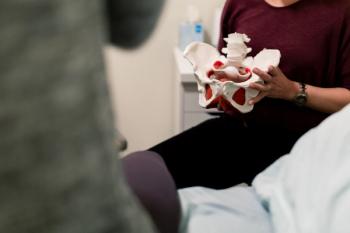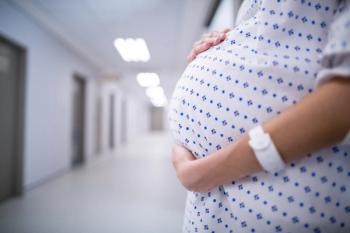
In this month's Legally Speaking column, find out the results of this case looking at a fourth-degree laceration repair.

In this month's Legally Speaking column, find out the results of this case looking at a fourth-degree laceration repair.

A model to estimate the optimal number of oocytes to try to fertilize during assisted reproductive technology (ART) treatment predicted that 43.4% of oocyte retrievals were day 3 transfers; hence, exposing all oocytes to sperm is recommended.


Interventions before and after birth can reduce the rising maternal mortality ratio.

In study findings published in Obstetrics & Gynecology, leva Pelvic Health System (Renovia) achieved significantly greater urinary incontinence symptom improvement than a standard home pelvic floor muscle training program at 6 and 12 months.

In the editorial featured in the March 2023 issue, Contemporary OB/GYN Editor-in-Chief Catherine Spong, MD, previews the issue's cover story on maternal mortality.

A new study suggests that ospemifene can reduce harmful bacteria and significantly contribute to vaginal health in postmenopausal women.

After observing an increase in the rate of syphilis cases, the Cleveland Clinic Ob/Gyn & Women’s Health Institute has partnered with the Center for Pediatric Infectious Diseases to evaluate the effectiveness of current testing strategies.

New research suggests that adding probiotics to established VVC treatment options may be a path to increased cure rates.

Women on Medicaid with opioid use disorder (OUD) who use medications for opioid use disorder (MOUD) are more likely to use contraception and to undergo female sterilization than peers not prescribed MOUD, according to a study in Contraception.

A new study in Menopause found body dissatisfaction to be a primary cause of eating disorders, especially during perimenopause.

Findings from a study in JAMA Network Open reveal valuable insight into the way cannabis legalization has impacted the perceptions of pregnant women who use cannabis in the US.

If approved, DARE-HRT1 would become the first FDA-approved monthly intravaginal ring to deliver both estrogen and progestin hormone therapy.

Fertility myths and declining sexual satisfaction may contribute to shortfalls in contraceptive use after cancer treatment, a new study concludes.

An umbrella review of meta-analysis studies on hormonal contraceptives published in JAMA Network Open finds no high-quality evidence that they cause major adverse health outcomes such as stroke or cancer.

In a recent presentation at at the Nurse Practitioners in Women’s Health (NPWH) 25th Annual Conference, Carri Holton, MSN, WHNP, discussed gynecological complications that adolescents may face and offered practical treatment options.